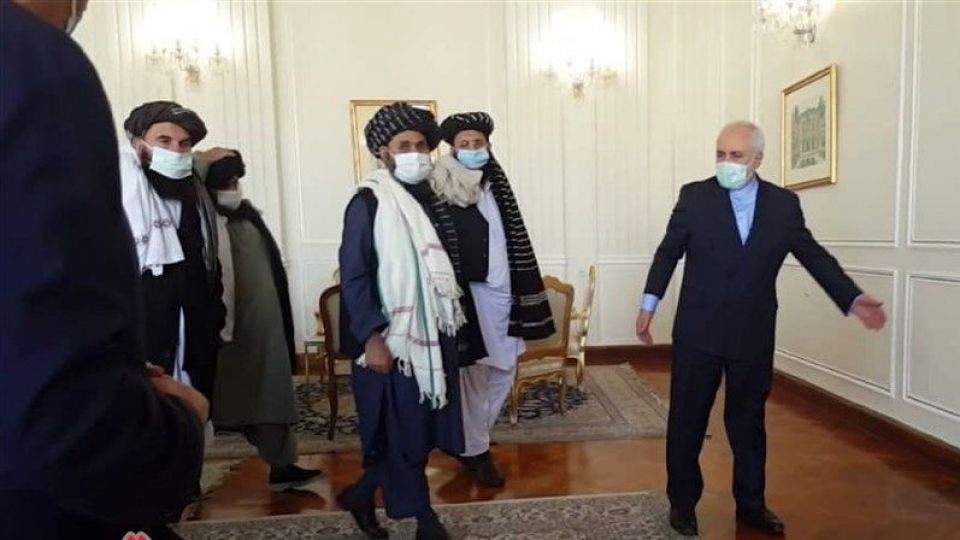AhlulBayt News Agency (ABNA): With the emergence of new and non-governmental players in the arena of the international system, relations have also changed and new forms of relations have taken shape. Domestic and transnational players, who are devoid of a governmental format, enter the field of politics and use the paths and methods that are recognized in foreign policy to influence international relations.
From this perspective, the foreign policy of the Islamic Republic of Iran also has a variety of real and legal players on the other side of the borders that formally and informally influence the decision-making process and behaviour of foreign policy in various ways.
Regarding the recent negotiations between Iran and the Taliban, it is necessary to pay attention to the following points:
First point: For the Islamic Republic of Iran, the Taliban is part of the current and future reality of Afghanistan and the region that cannot be ignored. The Taliban is a group that 1- has an extraterritorial nature and transnational connections, the scope of whose activities has spread to more than one country; 2- has an impact on other international players. In other words, the Taliban has entered into the diplomatic arena in recent years. If, from a specific perspective, diplomacy is divided into the four categories: denial diplomacy, marginal diplomacy, parallel diplomacy, and unintentional diplomacy, the Taliban, with the exception of denial diplomacy, which is highly destabilizing and causes severe ambiguity and separation among governmental and non-governmental political players, has actively entered into three dimensions of diplomacy. The inevitable result of the Taliban entering into the diplomatic arena could be a “divergence from violent and terrorist activities.”
Second point: The interaction and talks of the Islamic Republic of Iran are with that part of the Taliban that is no longer considered as a terrorist. At the time of Burhanuddin Rabbani (the tenth president of Afghanistan), when the Taliban emerged, it was a violent and terrorist group that, with US support, sought to seize absolute power in Afghanistan and on behalf of the United States pursue its goals. Therefore, it was a serious threat to Iran, Russia and China. After the Taliban failed to achieve its goals with the bravery of Afghan Mujahideen, especially the martyr Ahmad Shah Massoud, it gradually marginalized and eventually changed its approach as such that in recent years, it has constantly tried to play a role as a “political current” and a group inside Afghanistan in the political future of the country. The face of the Taliban is now more of a “political figure” with whom foreign countries, typically in coordination with the Afghan government, enter into negotiations. In this regard, Iran’s negotiations with the Taliban, which controls about 70 percent of Afghanistan, is an issue that can both lead to peace and development in Afghanistan and also prevent the Taliban to fall into the trap of profiteering countries that continue their attempts to push the group towards a monopolist terrorist tool. In simpler terms, Tehran believes that “dialogue and engagement” is the most important tool to encourage the group to play a constructive role in Afghanistan’s peace and development process and to repel terrorism, which is on the rise with the activities of ISIS in Afghanistan.
Third point; the Islamic Republic of Iran has always rejected the Islamic Emirate of Afghanistan and recognized the government of the Islamic Republic of Afghanistan, headed by Ashraf Ghani, as the official and legal government of Afghanistan. On the other hand, in the face of the Taliban, the Islamic Republic of Iran has always taken into account the Taliban’s position on Iran’s internal developments in recent years. The fact that the Taliban condemns the assassination of Sardar Soleimani and martyr Fakhrizadeh and denounces the killing of Shiites in Afghanistan, as well as the quality and quantity of its activities inside Afghanistan.
Fourth point: It is significant that the fight against ISIS is one of the main activities of the Taliban and withdrawal of the United States from Afghanistan is one of their main demands, and its realization is not only a great achievement for the Afghan people, but also for the Islamic Republic of Iran and the region. Today, the Taliban is practically standing up to the ISIS in Afghanistan; the ISIS which, if the depth and scope of its terrorist activities in Afghanistan expand, the consequences will be far more severe for Iran than the activities of ISIS in Iraq and Syria due to Iran’s long and common border with Afghanistan and the special cultural and civilizational convergence of the two countries. Therefore, it is necessary and useful to talk to the Taliban, who seeks to ground ISIS, maintain the security and health of the Shiites, expel the United States from Afghanistan, and bring peace to the country. Of course, the Taliban should also be warned that the Islamic Republic of Iran will not support the Taliban who seeks violence, monopolistic power-seeking and insecurity.
Hamid Khoshayand – Expert on International Affairs
/129

